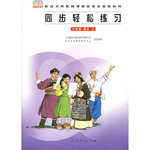题目内容
14.The Prime Minister wastruly (true) sorry that his speech was unable to satisfy the audience.分析 首相真的很遗憾他的演讲没有能够使听众满意.
解答 答案是truly.本题考查词性转换;题干中缺少的是修饰形容词sorry的副词,故用true的副词truly.
点评 本题是要求用所给词的适当形式填空,解题时首先考虑句中需要的词性;其次,如果是谓语动词关注时态、语态和数的变化;如果是非谓语动词要联系非谓语的基本用法判断非谓语的形式;如果是名词关注单复数.

练习册系列答案
 同步轻松练习系列答案
同步轻松练习系列答案 课课通课程标准思维方法与能力训练系列答案
课课通课程标准思维方法与能力训练系列答案
相关题目